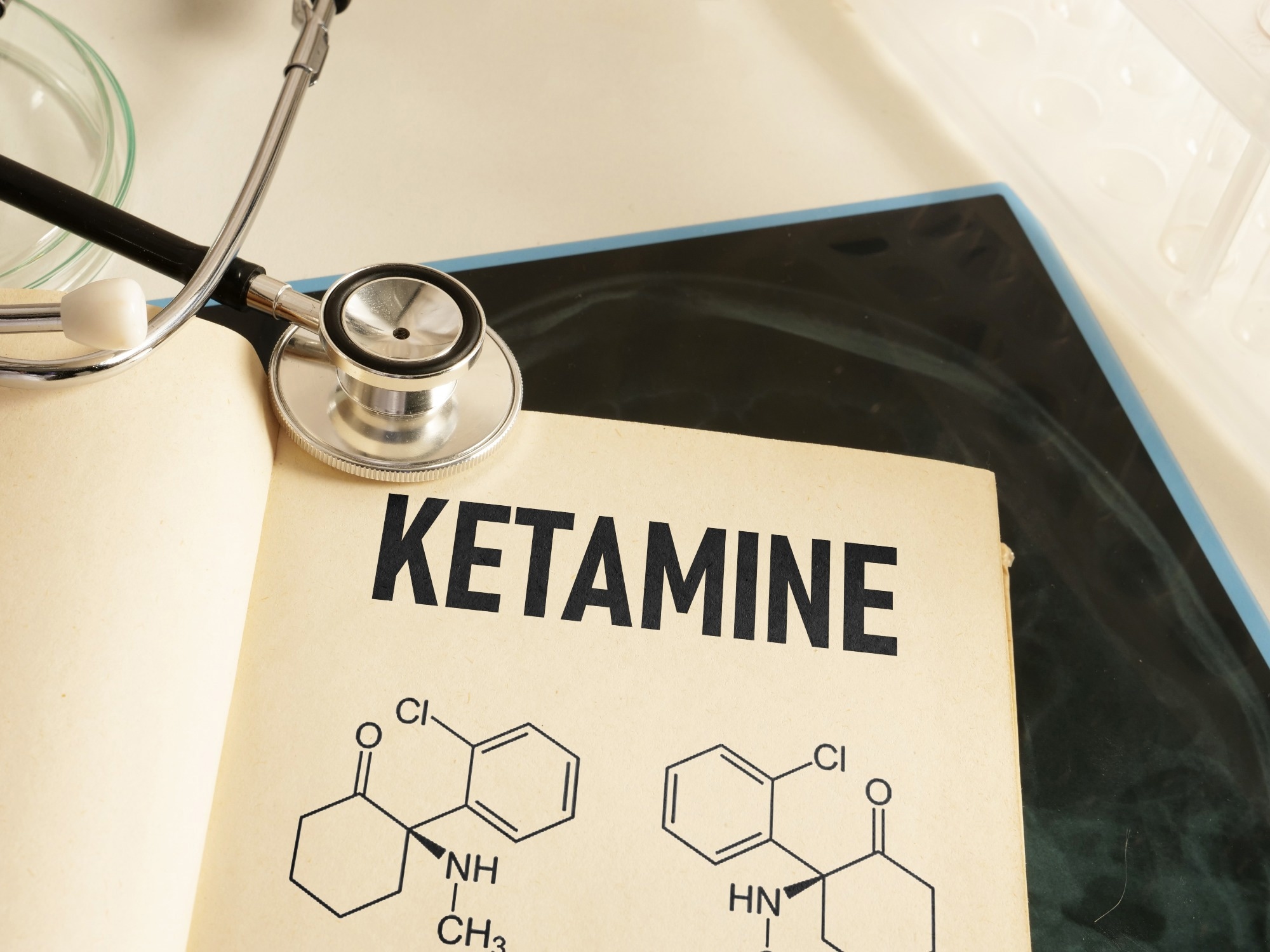In a current research revealed in Molecular Psychiatry, researchers evaluate the anti-inflammatory results of ketamine within the peripheral and central nervous methods. To this finish, all related articles have been obtained from PubMed and Net of Science databases, with each animal and human research revealed till September 2023 thought-about for the evaluation.
 Research: Ketamine’s mechanism of motion with an emphasis on neuroimmune regulation: Can the complement system complement ketamine’s antidepressant results? Picture Credit score: Jack_the_sparrow / Shutterstock.com
Research: Ketamine’s mechanism of motion with an emphasis on neuroimmune regulation: Can the complement system complement ketamine’s antidepressant results? Picture Credit score: Jack_the_sparrow / Shutterstock.com
Treating main depressive dysfunction
Main depressive dysfunction (MDD) is a temper dysfunction related to persistent emotions of lack of curiosity and disappointment. Present estimates point out that over 300 million people are affected by MDD globally, about 700,000 of whom commit suicide annually. Altered neurotrophin ranges and monoamine dysregulation are each mechanisms which were attributed to manifestations of MDD.
Monoamines related to noradrenergic, serotoninergic, and dopaminergic actions may be regulated by means of sure pharmaceutical brokers to enhance the cognition, sleep, and temper of MDD sufferers. Nonetheless, typical monoamine antidepressant remedy has solely been proven to be efficient in 30-40% of sufferers with MDD.
Based on the Sequenced Therapy Options to Relieve Melancholy (STAR*D) research, a big variety of MDD sufferers don’t reply to straightforward therapy. Sufferers who fail to answer two antidepressants of appropriate dosage are identified to undergo treatment-resistant despair (TRD).
Racemic (R, S)-ketamine, which is extra generally known as ketamine, and (S)-ketamine (esketamine) have proven important constructive results on MDD. As in comparison with typical remedies, ketamine has been proven to exert antidepressant results inside a number of hours. Many TRD sufferers have additionally responded positively to a single ketamine infusion.
Mechanism of motion of ketamine for MDD therapy
The mechanisms that underlie the antidepressant results of ketamine are related to the N-methyl-D-aspartate (NMDA) receptor, opioid pathway, α-amino-3-hydroxy-5-methyl-4-isoxazolepropionic acid (AMPA) receptor, and mechanistic goal of rapamycin (mTOR).
Varied neuronal cells, together with microglia and astrocytes, regulate neuroinflammation. People with MDD usually exhibit decrease ranges of glial fibrillary acidic protein (GFAP) and glutamate transporter-1 (GLT-1). In these sufferers, an acute administration of ketamine normalized these ranges, thus bettering their temper.
In vivo experimental findings have additionally proven that ketamine has an inhibitory impact in lipopolysaccharide (LPS)-induced microglial activation, which led to enhancements in depressive-like behaviors. Rodent research have additionally reported that reworking progress issue β (TGF)-β, an anti-inflammatory molecule inhibiting extreme microglial activation, is related to the differential antidepressant results of ketamine enantiomers.
Mouse fashions have revealed that (R)-ketamine, and never (S)-ketamine, alleviates stress-induced discount within the expression of Tgfb1 and its receptors Tgfbr1 and Tgfbr2. However, extra analysis is required to make clear the microglia-based mechanisms underlying the antidepressant results of ketamine.
Sufferers with MDD exhibit increased interleukin 6 (IL-6) and tumor necrosis issue ⍺ (TNF-⍺) ranges than non-depressed people. One rodent research revealed ketamine administration normalized these ranges and improved MDD signs.
Greater ranges of granulocyte-macrophage colony-stimulating issue (GM-CSF) have been noticed in sufferers with MDD. Administration of 0.5 mg/kg ketamine infusions for twelve days led to symptomatic enchancment that was related to important downregulation of GM-CSF.
Ketamine and the immune response
The antidepressant results of ketamine have been linked with the complement system, which is a crucial element of synaptic plasticity. The complement system includes 30 proteins which can be concerned within the classical, alternate, and lectin pathways, all of which converge in C3 cleavage, a significant complement element.
Complement proteins play an important function within the regulation of cell proliferation, maturation, and responsiveness. Activation of the complement system leads to the discharge of complement and immune molecules which can be linked with inflammatory responses.
Elevated ranges of serum complement parts C3a and C5a have been noticed in bipolar dysfunction. Equally, a excessive focus of serum C1q ranges is present in sufferers with MDD.
An in vivo experiment with C5a receptor knockout mice highlighted the neuroprotective function of C5a in opposition to glutamate excitotoxicity-induced apoptosis by means of elevated expression and regulation of glutamate receptor subunit 2 (GluR2). Glutamatergic modulation has been established as a mechanistic commonality between the complement system and ketamine.
Ketamine additionally prompts mTORC1 by triggering the brain-derived neurotrophic issue (BDNF), tropomyosin receptor kinase B (TrkB), and NMDA receptors. Moreover, the the C3a ligand-C3a receptor in CD4 + T-cells results in mTOR activatiwhich is on, important for cell survival. Complement-mTOR activation additionally modulates many stress and metabolic pathways, akin to cytokine secretion, oxidative phosphorylation, and inflammasome activation.
Conclusions
The present research indicated the potential affiliation between the complement system and the antidepressant results of ketamine. However, extra research are wanted to enhance therapy outcomes for MDD utilizing ketamine.
Journal reference:
- Quintanilla, B., Zarate, C. A., and Pillai, A. (2024) Ketamine’s mechanism of motion with an emphasis on neuroimmune regulation: Can the complement system complement ketamine’s antidepressant results? Molecular Psychiatry; 1-10. doi:10.1038/s41380-024-02507-7

